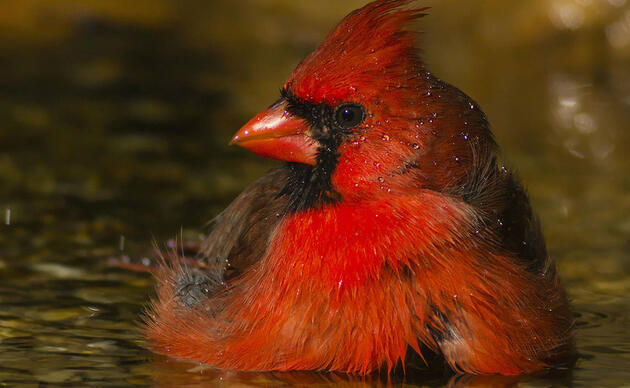The Lake Okeechobee Ecosystem: A Delicate Balance of Water
The marshes of Lake Okeechobee are a paradise of biodiversity. Everglade Snail Kites, Roseate Spoonbills, Tricolored Herons, and a plethora of other wildlife abound in this great ecosystem at the heart of the Greater Everglades.
For this incredible habitat to thrive, Lake Okeechobee’s water levels cannot be too high or too low. Marsh habitat drowns when water is too deep. When water is too low, marsh habitat dries up and is destroyed.
Last century, the Northern Everglades faced serious alterations to its natural system, as developers ditched and drained land. As a result, the natural system is off kilter and Lake Okeechobee now experiences rapid fluctuations in water levels. This results in harmful effects to the delicate Lake ecosystem. Water managers send large releases of Lake water to the St. Lucie and Caloosahatchee Estuaries for flood control. These releases have long term negative impacts on their ecosystems and local communities.
In addition, some water users in the south demand the Lake function as a reservoir for their water supply needs, despite the fragile nature of the ecosystem.
Lake Okeechobee’s natural balance of life must be protected. The Audubon Everglades Conservation Team advocates to state and federal partners to manage Lake Okeechobee with its precious ecosystem in mind. The long term fix is to store more water north of the Lake. Audubon supports Kissimmee River Restoration, easement programs, and partnerships with ranchers and landowners to achieve this goal. There are many exciting Everglades restoration initiatives that can help.
Lake Okeechobee's water levels require proper management to protect this treasured habitat for years to come. Click the link below to download our fact sheet to learn more about the liquid heart of the Everglades. Please feel free to print and distribute at your next Audubon Chapter meeting or community gathering.
How you can help, right now
Donate to Audubon
Help secure the future for birds at risk from climate change, habitat loss and other threats. Your support will power our science, education, advocacy and on-the-ground conservation efforts.
Become a Monthly Donor
Donating monthly is flexible, easy and convenient and makes you a champion birds can count on, no matter the season.
Volunteers Needed
Florida's birds and wildlife need your time and energy. Learn how you can become a citizen scientist or a volunteer at one of our nature centers today.




